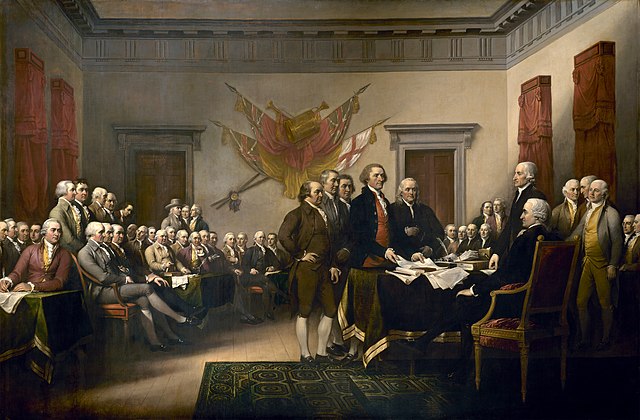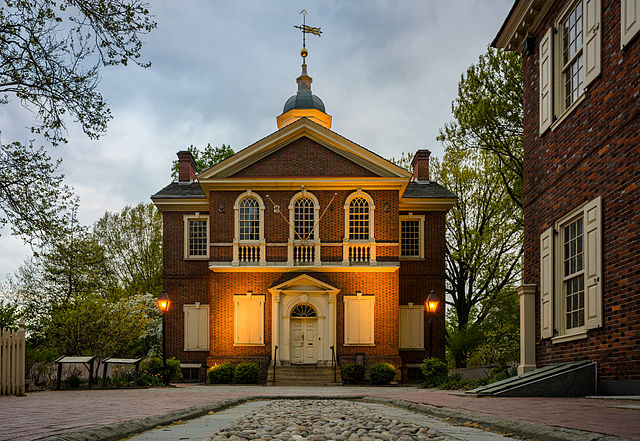Edward Rutledge was an American Founding Father and politician who signed the Continental Association and was the youngest signatory of the Declaration of Independence. He later served as the 39th governor of South Carolina.
1791 oil painting of Rutledge by Charles Earl
Rutledge is standing on the far right in John Trumbull's Declaration of Independence.
The Edward Rutledge House in Charleston
The Continental Association, also known as the Articles of Association or simply the Association, was an agreement among the American colonies adopted by the First Continental Congress in Philadelphia on October 20, 1774. It was a result of the escalating American Revolution and called for a trade boycott against British merchants by the colonies. Congress hoped that placing economic sanctions on British imports and exports would pressure Parliament into addressing the colonies' grievances, especially repealing the Intolerable Acts, which were strongly opposed by the colonies.
The First Continental Congress, meeting in Philadelphia, published and signed the Continental Association on October 20, 1774; Thomas Jefferson, who was not yet a delegate to the Congress, signed this copy (on lower left)
Carpenter's Hall in Philadelphia, where the First Continental Congress passed the Continental Association on October 20, 1774
Original Articles of Association, p. 1 See also: Pages 2 and 3 For printed text of the entire document see: WikiSource
Page 3, the signatory page of the Association







